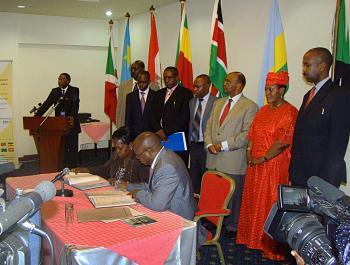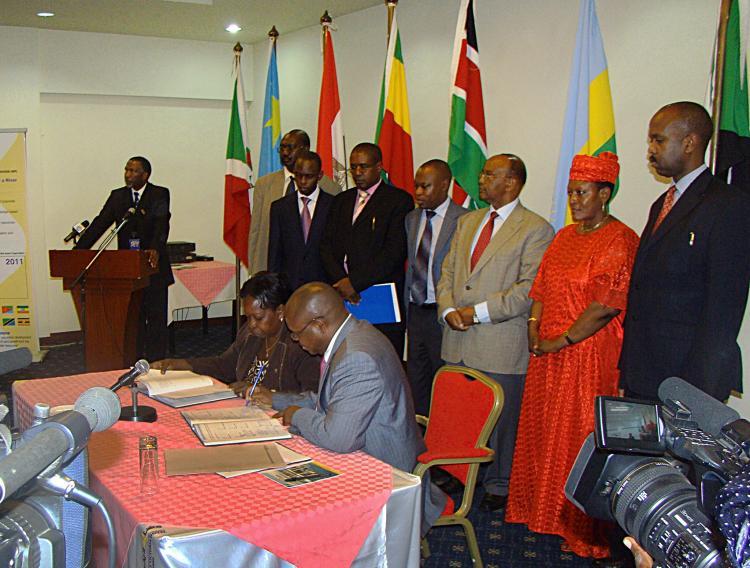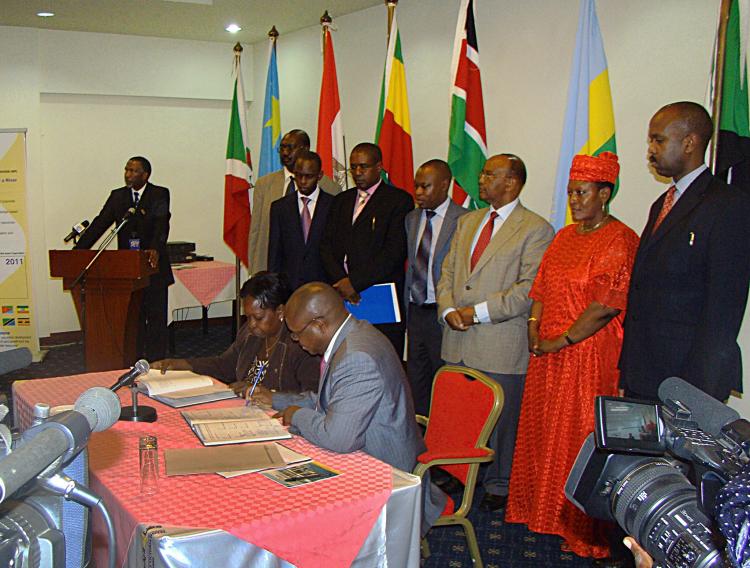After a decade of negotiations, four east African countries on Friday signed an agreement that would allow for more equitable distribution of water from the Nile River. Egypt and Sudan, which have primary and secondary rights to the water, refused to sign.
The countries that signed the Nile River Basin Cooperative Framework were Rwanda, Tanzania, Uganda, and Ethiopia. The agreement will take effect in one year and allow these upstream countries greater access to Nile water, according to NTV Kenya.
The other upstream Nile countries, Democratic Republic of Congo, Kenya, and Burundi, indicated that they are also willing to sign.
Under the current agreement, brokered by the British in 1929, Egypt has rights to the vast majority of Nile water and veto power over upstream water projects. A 1959 agreement gave Sudan secondary rights to the water.
Cairo says that the Nile water is an issue of “national security.” The country is already struggling with a shortage of water, and a 2007 report by the Water Research Center of Egypt said that the country will face “serious water shortages by the year 2025,” according to Egypt News.
Egypt and Sudan have said they will not sign a new agreement unless they are guaranteed their same share of water.
Egyptian Minister of State for Legal and Parliamentary Affairs Moufid Shehab said in April that, “Egypt does not have a water resource other than the Nile.“ Shehab added, ”Unlike the other Nile Basin countries, which have several sources of water, the River Nile provides Egypt with 95 percent of the country’s water needs,” according to Cairo online newspaper AL-AHRAM.
“The Nile Cooperative Framework Agreement must clearly recognize Egypt and Sudan’s historic share of the Nile waters,” said Egyptian Minister of Irrigation and Water Resources Mohamed Nasreddin Allam, according to AL-AHRAM.
The countries that signed the Nile River Basin Cooperative Framework were Rwanda, Tanzania, Uganda, and Ethiopia. The agreement will take effect in one year and allow these upstream countries greater access to Nile water, according to NTV Kenya.
The other upstream Nile countries, Democratic Republic of Congo, Kenya, and Burundi, indicated that they are also willing to sign.
Under the current agreement, brokered by the British in 1929, Egypt has rights to the vast majority of Nile water and veto power over upstream water projects. A 1959 agreement gave Sudan secondary rights to the water.
Cairo says that the Nile water is an issue of “national security.” The country is already struggling with a shortage of water, and a 2007 report by the Water Research Center of Egypt said that the country will face “serious water shortages by the year 2025,” according to Egypt News.
Egypt and Sudan have said they will not sign a new agreement unless they are guaranteed their same share of water.
Egyptian Minister of State for Legal and Parliamentary Affairs Moufid Shehab said in April that, “Egypt does not have a water resource other than the Nile.“ Shehab added, ”Unlike the other Nile Basin countries, which have several sources of water, the River Nile provides Egypt with 95 percent of the country’s water needs,” according to Cairo online newspaper AL-AHRAM.
“The Nile Cooperative Framework Agreement must clearly recognize Egypt and Sudan’s historic share of the Nile waters,” said Egyptian Minister of Irrigation and Water Resources Mohamed Nasreddin Allam, according to AL-AHRAM.


